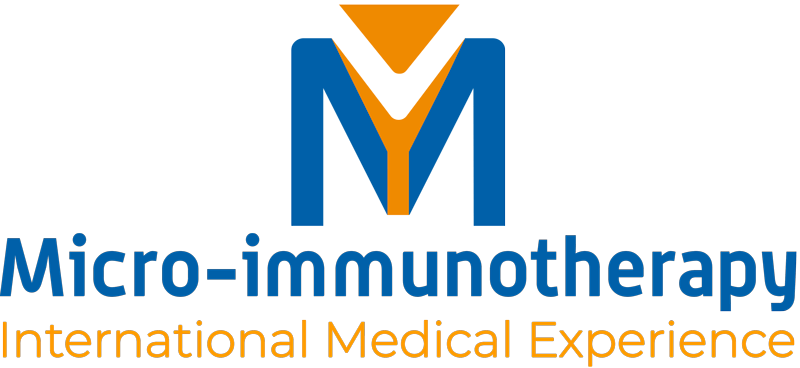Summary of the content:
1. What Is Mast Cell Activation Syndrome?
2. Behind The Scenes: Getting To The Bottom Of MCAS
3. Your clinical practice can benefit from micro-immunotherapy! Contact us to discover how.
(If you click on it, you will go directly to that part of the post)
When a subset of a system goes rogue, it is crucial to ask: What are the system’s failures, and why is the subset signaling these issues?
In the case of Mast Cell Activation Syndrome (MCAS), conventional treatments often focus on the “rogue” subset (mast cells) or its tool of disruption (histamine). However, this approach can overlook the systemic imbalances that drive the condition, and may inadvertently deplete essential components (mast cells and histamine) necessary for the system’s overall function.
In what follows, a systemic perspective on MCAS will be put forward, with a particular emphasis on the immune system and the pivotal role of inflammation in this multisystem disorder. We will then highlight micro-immunotherapy as a fundamental tool that facilitates profound and lasting change, rather than temporary improvements in patients with MCAS.
What Is Mast Cell Activation Syndrome?
MCAS, short for Mast Cell Activation Syndrome, is a multifaceted, multisystem disease affecting 17% of the world population in which, unlike mastocytosis, there is a normal amount of mast cells but they are hyperreactive, releasing histamine and other mediators in excess.
Manifestations of MCAS include symptoms that affect various body systems, such as tachychardia, fainting, urticaria, hot flushes, nausea, vomiting or brain fog. These symptoms are linked to a state of hyperinflammation caused by a cytokine storm in response to certain stressors, and are indicative of an immune system that is unable to respond appropriately and efficiently to challenges. In this context, excessive histamine release by mast cells is only the “tip of the iceberg” of a deeper, systemic dysregulation.
Behind The Scenes: Getting To The Bottom Of MCAS
Beyond Histamine
Histamine is a naturally occurring compound in the body, playing a crucial role as both a neurotransmitter and a tissue hormone. The problem in MCAS lies less with histamine itself and more with the conditions leading to its excessive release and insufficient degradation. These conditions are typically associated with immune overactivation. Although the triggers amounting to the “inflammatory cocktail” that underlies MCAS vary from patient to patient, some of them deserve special attention given their prevalence across patient groups:

Gut-associated inflammation
The gut houses a significant portion of the immune system, making it a critical site for immune responses. A compromised gut lining (leaky gut syndrome) can lead to chronic inflammation, which subsequently feeds into the cycle of mast cell dysfunction.

Mitochondrial dysfunction
Chronic inflammation, in turn, not only contributes to immune dysregulation but also impacts cellular function by affecting mitochondria—the powerhouses of the cell. Mitochondrial dysfunction is both a by-product and a driver of inflammation. When mitochondria are impaired, there is a decrease in ATP production, which is the main energy currency of the cell. This energy shortfall leads to cellular stress and exacerbates inflammatory responses, creating a vicious cycle.

Chronic infections
Persistent viral infections have gained attention, particularly with the emergence of conditions like Long COVID, which share symptom profiles with MCAS. These infections are key drivers of excessive immune activation and hyperinflammation, making them critical to consider in the comprehensive management of MCAS.

Restoring The System in MCAS
Conventional treatment approaches to MCAS often focus on reducing histamine through a low-histamine diet and/or blocking the release of this mediator via antihistamines or mast cell stabilisers. Although this approach can help reduce the symptoms in the short term, it does not tackle the root of the problem.
Effective treatment strategies are based on a multimodal approach that goes beyond symptomatic relief to include longer term interventions aimed at neutralising MCAS triggers by restoring overall immune balance.
This is where micro-immunotherapy comes into play. This approach offers a subtle tool for immune regulation by providing the organism with the pieces of information necessary to regain an effective communication between its immune components. Instead of targeting a single cell or substance, it communicates with the body through sequential compositions of cytokines administered in low doses. In this way, the microenvironment of cytokines determining the immune response is mimicked in its complexity and influenced upon through endogenous, well-tolerated signals.
Micro-immunotherapy To Gently Retrain Immunity in MCAS
Adding micro-immunotherapy to the therapeutic plan can bring a long-lasting, regulating effect on the immune system. Well-tolerated and easy to take sublingually, this low-dose immunotherapy can be used in MCAS with the following objectives depending on the constellation of each patient:
Regulate intestinal inflammation:
A specific micro-immunotherapy formula allows to modulate the gut-associated immune response and thus help repair the intestinal barrier. By dampening inflammation in a physiological manner, it prepares the ground necessary for the efficacy of other interventions such as administration of prebiotics/probiotics, micronutrient supplementation or dietary changes.
Restore mitochondrial function:
Enhancing mitochondrial health is crucial in breaking the cycle of inflammation and restoring energy production. The micro-immunotherapy toolkit provides a formula designed to regulate the pathways leading to excessive ROS production, contributing to improved cellular function, reduced oxidative stress, and sustained energy levels.
Support the antiviral defence:
Specific antiviral micro-immunotherapy formulas allow to promote an effective antiviral defence. They are directed at reducing the viral burden by harnessing the body’s own antiviral mechanisms. In this way, viruses driving excessive immune activation can be neutralised.
Counteract allergic-like responses:
Micro-immunotherapy can as well be used to modulate the immune system so as to reduce the sensitivity and overreaction to allergens and other triggers, thus decreasing the frequency and severity of allergic-like symptoms.
Your clinical practice can benefit from micro-immunotherapy! Contact us to discover how.
Schedule your Free Call today and get personalised insights into how micro-immunotherapy can transform your therapeutic strategy.
